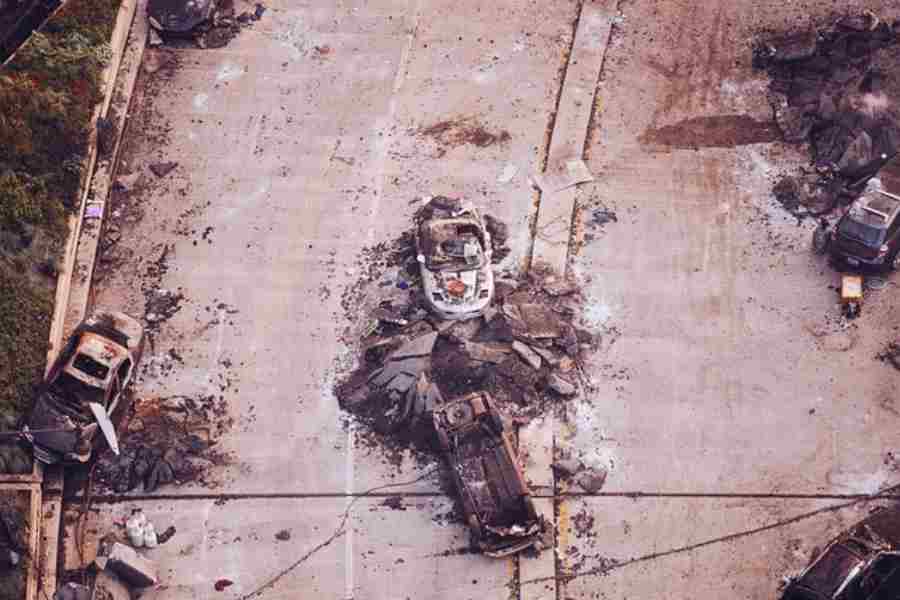
The intersection of terrorism and war crimes poses a complex and contentious issue within the realm of international law and morality. While terrorism and war crimes are distinct concepts, their overlap raises questions regarding legal definitions, moral culpability, and the appropriate response of the international community. This article delves into the debate surrounding whether terrorism should be considered a war crime, exploring legal precedents, moral considerations, and practical implications. By examining historical contexts, contemporary manifestations, and case studies, we aim to comprehensively analyze this multifaceted issue and its implications for global security and justice.
Is terrorism a war crime?
No, terrorism itself is not inherently classified as a war crime under international law. While acts of terrorism often result in egregious violations of human rights and can occur within the context of armed conflict, they are distinct from war crimes. War crimes are defined explicitly within international humanitarian law and encompass acts committed during armed conflict that violate the laws and customs of war. However, terrorist acts may sometimes constitute war crimes if they meet the criteria outlined in international legal instruments, such as intentionally targeting civilians or using prohibited weapons. It’s crucial to differentiate between the two concepts while acknowledging the complexity and overlap in certain situations, which adds a layer of intellectual challenge to this debate.
Understanding Terrorism
Terrorism is a multifaceted phenomenon with deep historical roots and contemporary manifestations that pose significant challenges to global security. At its core, terrorism involves the deliberate use of violence or intimidation to achieve political, ideological, or religious objectives. It is often characterized by acts of violence targeting civilians, non-combatants, or symbolic targets to instill fear, coerce governments, or disrupt societal stability.
Historically, terrorism has taken various forms, from the anarchist movements of the late 19th century to the nationalist struggles of the 20th century and the religious extremism of the present day. Its evolution is intertwined with broader geopolitical dynamics, socio-economic grievances, and ideological conflicts, making it a complex and adaptive phenomenon.
Contemporary terrorism is marked by its transnational nature, facilitated by technological advancements, communication, and global interconnectedness. Terrorist groups operate across borders, utilizing propaganda, recruitment tactics, and asymmetric warfare strategies to further their objectives. Moreover, the rise of lone-wolf attacks and self-radicalization poses new challenges for counterterrorism efforts, blurring the lines between organized groups and individual actors.
The motivations driving terrorism are diverse and often intersect with issues of identity, ideology, and power dynamics. Whether rooted in nationalist aspirations, religious extremism, or grievances against perceived injustices, terrorist groups exploit grievances and exploit vulnerabilities to recruit followers and garner support.
The impact of terrorism extends beyond its immediate victims, with far-reaching consequences for communities, economies, and global security. It undermines trust in institutions, fosters fear and division, and fuels cycles of violence and retaliation. Moreover, the threat of terrorism has led to the erosion of civil liberties, increased securitization measures, and debates over the balance between security and individual freedoms.
In confronting the challenge of terrorism, it is essential to adopt a comprehensive and nuanced approach that addresses its root causes, strengthens resilience, and promotes cooperation among nations. By understanding the complex dynamics driving terrorism and adopting multifaceted strategies that combine security measures with efforts to address grievances and promote inclusivity, the international community can work towards mitigating the threat posed by terrorism while upholding fundamental principles of human rights and justice.
Analyzing The Nexus Between Terrorism And War Crimes
Analyzing the Nexus Between Terrorism and War Crimes:
Legal Perspectives:
- Defining Terrorism and War Crimes: Terrorism, typically characterized by the deliberate targeting of civilians for political or ideological purposes, and war crimes, which encompass violations of international humanitarian law during armed conflict, are distinct legal concepts. While terrorism is not explicitly classified as a war crime, there are instances where terrorist acts may overlap with war crimes, particularly when they involve the intentional targeting of civilians or the commission of atrocities within the context of armed conflict.
- International Legal Framework: The Geneva Conventions, additional protocols, and customary international law provide the legal framework for defining and prosecuting war crimes. These instruments establish principles such as distinction, proportionality, and protection of civilians, which are violated by terrorist acts that deliberately target non-combatants or use indiscriminate violence.
- Challenges in Prosecution: One of the primary challenges in prosecuting terrorists as war criminals lies in establishing jurisdiction and proving the necessary elements of war crimes beyond a reasonable doubt. Unlike conventional armed conflicts, where the parties are typically states or organized armed groups, terrorist networks often operate in a decentralized and covert manner, making attribution and accountability difficult.
Moral and Ethical Considerations:
- Intentions vs. Consequences: While both terrorism and war crimes involve acts of violence and disregard for human life, there are distinctions in terms of intent and context. War crimes are often committed within the framework of armed conflict, where legal and moral norms governing the conduct of hostilities apply. In contrast, terrorism involves acts of violence outside traditional conflict scenarios. The moral blameworthiness of terrorism may be influenced by factors such as the perceived legitimacy of the cause, the proportionality of the means employed, and the degree of civilian harm inflicted.
- Impact on Civilian Populations: Both terrorism and war crimes can have devastating effects on civilian populations, leading to loss of life, displacement, and psychological trauma. However, terrorist acts often seek to maximize fear and disruption through symbolic targets and mass casualties. At the same time, war crimes may occur in the context of broader military operations, such as indiscriminate bombing or targeted killings. The deliberate targeting of civilians by terrorist groups and the use of tactics such as suicide bombings raise particular ethical concerns regarding the protection of innocent lives and adherence to the principles of humanity.
Terrorist Acts and Allegations of War Crimes
Terrorist acts, often characterized by their indiscriminate targeting of civilians and use of violence to instill fear and achieve political or ideological objectives, have been the subject of intense scrutiny and condemnation within the international community. In recent decades, various terrorist organizations have been accused of committing atrocities that may constitute war crimes under international humanitarian law. These allegations arise in situations where terrorist activities intersect with armed conflict scenarios or where terrorist groups engage in tactics that flagrantly violate the laws and customs of war.
Deliberate Targeting of Civilians:
One of the primary allegations against terrorist groups is their deliberate targeting of civilians as part of their operational strategy. Suicide bombings, mass shootings, and other forms of violence perpetrated against non-combatants are not only morally reprehensible but may also constitute war crimes under international law. The intentional killing or injuring of civilians, as well as the destruction of civilian infrastructure or cultural heritage sites, can be deemed as violations of the principle of distinction, which requires parties to a conflict to distinguish between military objectives and civilians.
Use of Prohibited Weapons or Methods:
In some cases, terrorist organizations have been accused of employing prohibited weapons or methods that are inherently indiscriminate or cause unnecessary suffering. For example, the use of chemical weapons, such as sarin gas or chlorine gas, in terrorist attacks would not only violate the Chemical Weapons Convention. Still, it may also constitute war crimes under the Geneva Conventions. Similarly, tactics such as hostage-taking, torture, or the deliberate infliction of terror on civilian populations may be considered grave breaches of international humanitarian law.
Collaboration with State Actors or Armed Groups:
Allegations of war crimes may also arise when terrorist organizations collaborate with state actors or other armed groups involved in armed conflicts. In such cases, terrorist groups may be complicit in or directly responsible for atrocities committed by their allies, including acts of genocide, ethnic cleansing, or mass atrocities. The principle of command responsibility holds individuals, including leaders of terrorist organizations, accountable for war crimes committed by their subordinates if they knew or should have known about the crimes and failed to take action to prevent or punish them.
Implications for International Law and Policy
The nexus between terrorism and war crimes presents profound implications for international law and policy, challenging existing frameworks and necessitating adaptive responses to address evolving threats to global security and human rights.
Strengthening Legal Frameworks: The allegations of war crimes arising from terrorist acts highlight the need to strengthen international legal frameworks governing armed conflict and counterterrorism efforts. This includes clarifying the legal definitions of terrorism and war crimes, enhancing mechanisms for prosecuting individuals and organizations responsible for such crimes, and ensuring effective cooperation and coordination among states and international organizations.
Closing Gaps and Addressing Ambiguities: The complexity of modern conflicts, characterized by non-state actors, asymmetrical warfare tactics, and transnational networks, underscores the importance of closing legal gaps and addressing ambiguities in applying international humanitarian law and counterterrorism measures. This may involve harmonizing legal standards, clarifying the extraterritorial jurisdiction of national courts, and enhancing international cooperation in gathering evidence and prosecuting perpetrators.
Enhancing Cooperation and Coordination: Effectively addressing the nexus between terrorism and war crimes requires enhanced cooperation and coordination among states, international organizations, and civil society actors. This includes sharing intelligence, coordinating law enforcement efforts, and pooling resources to prevent terrorist financing and disrupt networks involved in the commission of war crimes. Moreover, fostering dialogue and cooperation between conflict-affected states and international partners is essential for building capacity, promoting reconciliation, and addressing the root causes of terrorism and armed conflict.
Balancing Security Imperatives with Human Rights: While combating terrorism and prosecuting war crimes are imperative for maintaining international peace and security, balancing security imperatives with respect for human rights and the rule of law is essential. This entails ensuring that counterterrorism measures do not infringe upon fundamental rights and freedoms, such as the right to due process, fair trial, and protection from arbitrary detention or torture. Moreover, efforts to combat terrorism must be conducted following international legal standards, including proportionality, necessity, and non-discrimination, to avoid exacerbating grievances and fueling radicalization.
Bottom Line
The intersection of terrorism and war crimes underscores the complexity of modern conflicts and the challenges they pose to international law and policy. While terrorism itself is not classified as a war crime, allegations of war crimes arising from terrorist acts highlight the need for a nuanced and comprehensive approach that balances security imperatives with respect for human rights and the rule of law. Strengthening legal frameworks, enhancing cooperation and coordination among states and international organizations, and upholding fundamental principles of justice and accountability are essential in addressing the implications of this nexus and mitigating the threats posed by terrorism and armed conflict to global peace and security.
FAQ’s
Q. Can terrorists be prosecuted for war crimes?
Terrorists can be prosecuted for war crimes if they commit acts that meet the criteria outlined in international legal instruments, such as intentionally targeting civilians or using prohibited weapons. However, prosecuting terrorists for war crimes may pose challenges in terms of jurisdiction and evidence gathering.
What is the punishment for war crimes?
Individuals convicted of war crimes can face severe penalties, including imprisonment or, in some cases, the death penalty. International tribunals, such as the International Criminal Court (ICC) or ad hoc tribunals, are responsible for prosecuting war crimes and ensuring accountability for perpetrators.
How are war crimes investigated?
National authorities, international tribunals, or independent commissions investigate war crimes. Investigations typically involve gathering evidence, interviewing witnesses, and examining forensic evidence to establish the facts surrounding the alleged crimes. Cooperation between states and international organizations is essential in conducting thorough and impartial investigations.





